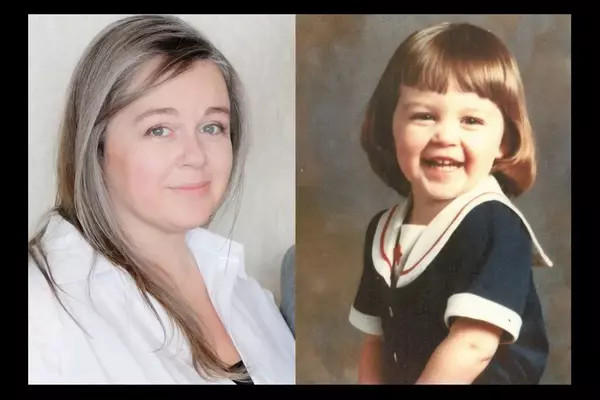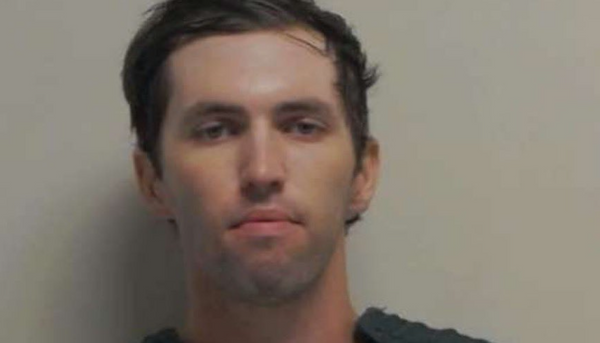
Good morning. Yesterday, the UN’s humanitarian chief, Martin Griffiths, issued a dire warning about the consequences of an Israeli ground assault on Rafah, Gaza’s southernmost city. “The scenario we have long dreaded is unravelling at alarming speed,” he said. Palestinian civilians trapped there, he added, are “staring death in the face”.
For more than a week, Israel has intensified its aerial attack on Rafah, saying that it is the last refuge of Hamas militants who have been driven out of the rest of Gaza. But hundreds of thousands of refugees have also fled to the area – and Israel is yet to set out a plan to keep them safe if it proceeds with a ground operation.
Last night, as negotiations over a ceasefire deal continued in Cairo, Benjamin Netanyahu showed little appetite for calling off the operation. He said on Telegram: “We will fight until complete victory and this includes a powerful action in Rafah as well, after we allow the civilian population to leave the battle zones.”
Today’s newsletter explains the conditions in Rafah, Israel’s rationale, and just how difficult it will be to get civilians out. Here are the headlines.
Five big stories
US news | At least one person was killed and 22 others injured, including eight children, in a shooting during a Super Bowl victory parade for the Kansas City Chiefs on Wednesday. Hundreds of people who gathered to celebrate the Chiefs’ victory on Sunday over the San Francisco 49ers ran for shelter from the gunfire.
Antisemitism | The scale of the surge in antisemitism in the UK since Hamas’s attack on Israel on 7 October has been revealed, in data showing a 589% increase in the number of incidents compared with the same period in 2022.
Labour | Keir Starmer is facing a fresh test of his authority as MPs prepare to vote on a second parliamentary motion calling for an “immediate” ceasefire in Gaza next week. The party’s abstention on a similar vote in November triggered a huge split in the party and 10 frontbench resignations.
Security | The head of the US House intelligence committee, Mike Turner, has called for the Biden administration to declassify information on what he called a “serious national security threat”, later reported to involve Russian plans to deploy nuclear weapons in space. The New York Times said US allies had been briefed on the intelligence, which was not deemed to represent an urgent threat.
Food | Bowls of pink-tinged rice are about to feature on sustainable food menus, according to researchers who created rice grains with beef and cow fat cells grown in them. It is hoped the rice, created using stem cells, will be a more affordable source of protein than traditional beef, with a smaller carbon footprint.
In depth: ‘We either go home to our houses, or we die here’

For much of the war in Gaza, Rafah has appeared among the safest places for civilians to go. Within just a few days at the end of December, 100,000 people arrived there from further north. It has also been a crucial route for limited aid supplies to get into the territory.
But after Benjamin Netanyahu’s warnings that Israel will target the area, Rafah looks like a trap. “The people who are in Rafah on many occasions have already moved three, four or five times,” the UK’s foreign secretary, David Cameron, said on Tuesday. “And it’s not possible to move again.”
***
Conditions in Rafah
Before Hamas’s 7 October attack on Israel, there were 280,000 people living in Rafah governorate. Today, there are about 1.4 million people, including, says Unicef, 600,000 children, at an average density of 22,200 people a square kilometre. That is a higher population density than Paris or Mumbai. Many of these refugees have been forced to flee multiple times since Israel’s assault on Gaza began. The satellite images below illustrate the change between October and January: the small dots on the right are tents where people are now taking shelter.

Conditions are already dire in an area likened to a “gigantic refugee camp”. Those arriving in Rafah lack even tents to shelter in, Tamara Alrifai of UNRWA told Ruth Michaelson two weeks ago. Disease – including hepatitis A, gastroenteritis, and diarrhoea – is rampant, medical supplies are dwindling, and there are severe shortages of food and water.
Even before the mooted ground invasion, Israel is bombarding the area heavily. About 100 people were killed in airstrikes and shelling in Rafah and Khan Younis, just to the north, in 24 hours, the Gaza health ministry said yesterday. The Israeli offensive has already killed more than 28,000 people across Gaza. Amnesty International and others have accused Israel of carrying out attacks in Rafah that have been in breach of international humanitarian law by failing to discriminate between civilian and military targets.
Even this dreadful situation could be severely worsened by a ground invasion. Civilians who are unable to evacuate will plainly be in great danger. Last week, Ashraf, 40, who has been displaced to Rafah, told Peter Beaumont and Nedal Samir Hamdouna: “We’ll wait for the order from Israel to tell us where to go. Our last stop is Rafah. We are not going to anywhere else out of Gaza Strip. We either go home to our houses, or we die here.”
***
Israel’s rationale
While Rafah has been hit throughout the war, expectations of a possible ground assault grew as Israel intensified strikes last week, including an attack on the western road in and out of the city.
Last Wednesday, Benjamin Netanyahu confirmed that the Israel Defense Forces had been ordered to prepare for a ground assault. On Friday, he told officials to draw up a plan for evacuating civilians from the area, leading to widespread panic among those taking shelter in tents. And he doubled down on that plan on Sunday, telling ABC News the IDF was “going to get the remaining Hamas terrorist battalions in Rafah” and that calls for restraint were tantamount to telling Israel: “Lose the war. Keep Hamas there.”
While Israel has claimed to have made significant progress towards the destruction of Hamas, US intelligence officials reportedly say that about two-thirds of its fighters are still alive, although the group’s military capacity has been degraded.
Israel says that its plans in Rafah are essential to its goal of eliminating Hamas because many militants have taken refuge there; Netanyahu has called the area Hamas’s “last bastion”. It is believed that Yahya Sinwar, Hamas’ leader in Gaza, is in hiding in the governorate along with other senior leaders. Meanwhile, Israel also sees a benefit in gaining control of the southern border with Egypt to prevent arms getting into Gaza.
***
The prospects of evacuation
While Netanyahu says that Israel is working out how to get civilians out of the area, no such plan has yet been made public. The Wall Street Journal reported (£) that proposals shared with Egypt by Israel would involve Egypt administering 15 new campsites, with about 25,000 tents each, on Gaza’s Mediterranean coast.
Palestinians and aid workers are deeply sceptical about the reliability of any security guarantees for those areas – given areas and routes designated as safe have repeatedly come under attack (including Rafah itself). Even if Israel does keep its word and Palestinians are persuaded of its reliability, the logistics of such an operation would be formidable.
The obvious alternatives are to allow displaced Palestinians across the border into Israel itself, which Israel has said it will not allow, or into Egypt. But Cairo has consistently refused to allow significant numbers of Palestinians across its border with Gaza, and in recent days Egypt has reportedly deployed tanks and armoured personnel carriers to the area. Videos shared by the Sinai Foundation for Human Rights have meanwhile appeared to show Egyptian forces reinforcing the concrete border fence with barbed wire. The US has said that an offensive in Rafah without a proper plan to protect civilians would be a “disaster”. But Politico reported that there are no plans for the US to punish Israel if it does go ahead.
***
Israel’s duty to prevent genocide and respect international law
Last month, the UN’s international court of justice ordered Israel to ensure its forces do not commit acts of genocide against Palestinians in Gaza. That interim ruling (pdf) specifically warned that Israel must “take all measures within its power” to prevent genocide, including the killing of Palestinians but also “deliberately inflicting … conditions of life calculated to bring about [the Palestinian people’s] physical destruction in whole or in part”.

Israel has rejected the ruling wholesale, and would further deny that its plan in Rafah risks breaching the court’s order. But many experts say there is a severe risk that without an adequate evacuation plan in place large numbers of Palestinian civilians will be killed, and many more will fall victim to an even worse humanitarian catastrophe than they already face. Amnesty International says that there is a “real and imminent risk of genocide”. Now South Africa, which brought the original case, has filed a new request with the ICJ (£) to set out emergency constraints on Israel’s operation.
***
Why the operation hasn’t happened yet
While the bombing of Rafah has intensified, Netanyahu has not yet ordered a full-scale ground attack. That may simply be because military orders are still being finalised, and, conscious of the damage to its already dwindling international support that a worse crisis in Rafah could do, Israel wants to have a more robust plan for civilians there in place before it acts. Netanyahu said yesterday that an operation would only happen “after we allow the civilian population to leave the battle zones”.
But there are also real questions over internal Israeli support for such an operation – and over whether the military resources are in place to pull it off. The Economist reports (£) that instead of mustering the necessary troops, Israel’s generals have been pulling forces out of the territory and demobilising many reservists who were called up after Hamas’ 7 October attack. Netanyahu’s likely electoral rival and war cabinet minister Benny Gantz is understood to oppose such an operation.
Much is likely to depend on whether ceasefire talks under way in Cairo end in an agreement. Mediators have described the talks as “constructive and moving in the right direction”. But Netanyahu’s comments yesterday about “complete victory” suggest there is a long way to go if Rafah is to be reprieved.
What else we’ve been reading

Reactionary figures have called for a ban on transgender people participating in parkruns. Jonathan Liew writes that though this would effectively be unenforceable, the cruelty is the point: “The message to trans women, trans men – or even anyone who looks like they might be trans – that this is not your space, and you will identify not according to your values but to ours.” Nimo
If you don’t know your IPDs (interpupillary distance, the gap between the eyes) from your canthal tilt (the angles of the eyes), you are probably not into looksmaxxing, a bleak phenomenon among some young men that has now graduated from obscure online forums to TikTok. Simon Usborne’s feature is fascinating, gruesome, and made me feel very old and concerned about my jawline. Archie
To deal with their recruitment struggles, the US military has started targeting teens on gaming platforms (pictured above). Rosa Schwartzburg delves into the ethically dubious world of marketing war to minors through video games. Nimo
The only fan letter Adrian Chiles ever wrote was to Steve Wright. His tribute to the late Radio 2 host is as warm as its subject. Archie
About 30 bodies a year are pulled out of the Thames, and most of them don’t make the news. Caroline Davies spoke to the people whose job it is retrieve them. Nimo
Sport

Cricket | Two wickets for Mark Wood (above) and one for Tom Hartley gave England a strong start against India in the third test, leaving the hosts 33-3 on the first morning. But a dropped Joe Root catch gave Rohit Sharma a life on 27 and he moved on to a half-century as India recovered to 107-3 a few minutes ago. Follow live coverage here.
Champions League | Ciro Immobile scored a 69th-minute penalty to secure a 1-0 victory for Lazio against Bayern Munich, who finished with 10 men in their Champions League last-16 first leg. In Paris, goals from Kylian Mbappé and Bradley Barcola gave PSG a 2-0 advantage over Real Sociedad going into the second leg.
Formula One | Christian Horner will attend the launch of the new Red Bull car on Thursday in his position as team principal despite an ongoing investigation into allegations of inappropriate behaviour. Horner, who denies any wrongdoing, has not been suspended from his role and is expected to speak at the event.
The front pages

“New ceasefire vote ramps up pressure on Starmer” is the splash in the Guardian print edition, while “Antisemitism surged in UK after Hamas attacks” also features on the front. The latter is the main talking point for several other papers: “Worst antisemitism for 40 years since atrocities” says the Times a bit confusingly, while the Daily Mail has “The ‘explosion in hatred’ against Jews in Britain”. “We’re on the up! So loosen the purse strings, Mr Hunt” – that’s the Daily Express, backed up by the Financial Times: “Hunt weighs deeper public spending cuts to fund tax giveaway in budget”. “Interest rates to remain above 2% for years, says Bank chief” – that’s the i while the Metro leads with “UK pays TikTok stars to stop boats”. The Daily Telegraph has “Russia will put nuclear weapon into space, US fears”. Top story in the Daily Mirror is “NHS nurses crisis” – it says there has been a recruitment meltdown.
Today in Focus

Israel’s threat to Gaza’s last refuge
What does the Israeli ground invasion threat mean for the million refugees sheltering in the city of Rafah? Ruth Michaelson reports
Cartoon of the day | Ben Jennings

The Upside
A bit of good news to remind you that the world’s not all bad

There is no one singular way to show love and appreciation to your partner, but a common theme for Guardian readers is thoughtfulness and consistency. Daisy, a charity worker in London, makes sure to send her long-distance girlfriend a voice note to wake up to every day to create a sense of closeness. Samantha Morrison values acts of service: her husband listens out for anything that might need fixing or replenishing. Last weekend, he refilled the screenwash on her car without her asking. A gesture as simple as a hot water bottle left in bed after a night shift working in a hospice is enough to make Fiona feel seen and taken care of. Theo in Spain, meanwhile, leaves his wife little cards in her bag or her desk at work – they have become something of a treasure hunt as sometimes it takes her weeks to find them.
Sign up here for a weekly roundup of The Upside, sent to you every Sunday
Bored at work?
And finally, the Guardian’s puzzles are here to keep you entertained throughout the day – with plenty more on the Guardian’s Puzzles app for iOS and Android. Until tomorrow.







